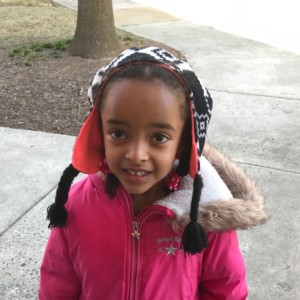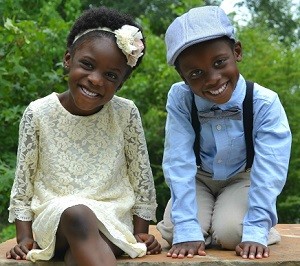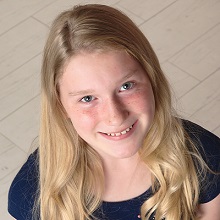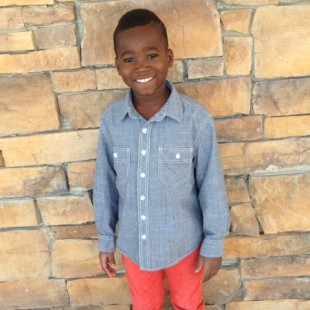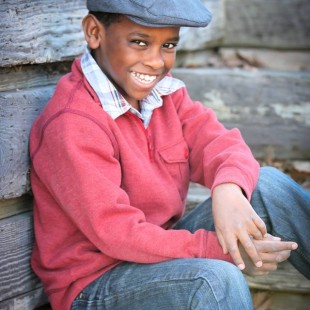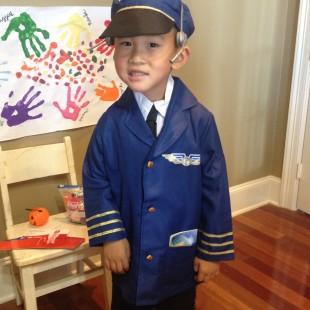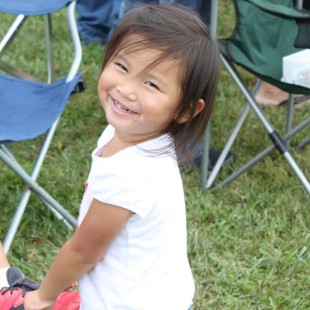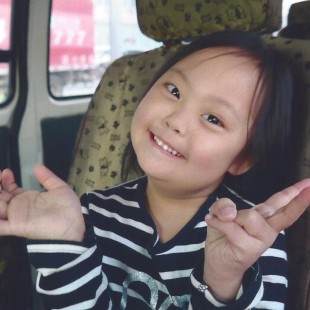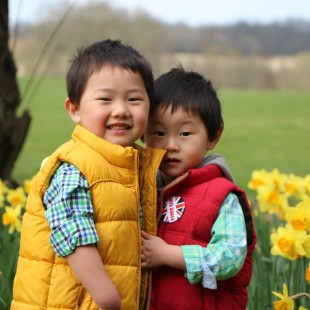Description
Meet Violet! This precious girl is 7 years old and was adopted internationally when she was four. Violet lives in a rural setting with her adoptive parents and their four biological children: a 6-year-old daughter, a 4-year old son, a 2-year-old son, and a 1-year old daughter. Violet was diagnosed shortly after birth with Wolf-Hirschhorn Syndrome which causes her to be very small in stature (she is the size of an average 3-year-old). Violet is non-verbal and non-ambulatory. She also suffers from seizures and uses a G-tube for feedings.
Violet gets overstimulated being in such a large family with so many younger siblings. Overstimulation causes her to “shut down,” limiting her ability to interact and grow in her abilities. Other children with her diagnosis are able to eat solids, drink liquids, and even walk. Violet’s family does not believe she’ll be able to reach her full potential being in their home. Living rurally, there have limited medical and educational resources available to them. For these reasons, they are seeking a family with no other young children who have the time and resources to invest in Violet so she can thrive and grow physically and relationally. They are hoping for a traditional Christian family or single parent with lots of support to adopt her. When Violet is one-on-one with an adult, she is much more willing to engage, make eye contact, and snuggle contentedly. In a busy household, she tends to retreat into her own world.
While Violet requires constant care, she is very independent and not demanding of attention. She enjoys scooting around the floor, swinging, or laying in her hammock. She is usually quite contented unless there are a lot of other kids around. She really enjoys playing with shoes or sandals, waving them around and dangling them from her fingers. She also likes finding strings she can play with and loop around her fingers. Her mom says that her care does not require a lot of medical knowledge or constant interaction, but she does need someone with the time to meet her needs and help encourage her to continue developing new skills.
In the past, Violet has been willing to eat rice cereal and other purees. She’s even drunk milk from a bottle. Lately, she hasn’t been interested in eating anything by mouth so she gets her nutrition through a feeding tube. With time and practice, she could possibly regain and enjoy the ability to eat foods orally. Her adoptive mom thinks that with therapy, she could potentially walk one day.
This is a private adoption, so a state or foster home study might not work. A private domestic homestudy is generally required. You will need to have a current, or easily-updated homestudy for this adoption. If your homestudy is current or you’re within 3 weeks of it being completed, feel free to inquire further. Our goal is to find a new, successful adoptive family for this child. We do not facilitate long-term respite care, nor do we allow for “trial periods” or visits between you and the child before the match is made and the child changes homes. By inquiring further, you are implying you have a desire to adopt, and not to offer other creative placement solutions.
Unless otherwise noted, we require that all of the children in our program be the youngest in their new family by at least two years. We ask that you honor this requirement and not ask us to bend the rules. These children need the chance to be the “baby” of the family and to receive much needed attention so they can attach and have a healthy start in their new home. When a sibling is close in age or younger than them, this will usually foster jealousy and competition which won’t lead to a successful placement. Thank you for understanding. If you are married, we also ask that you have been married for a minimum of 2.5 years before applying to adopt through our program.
Due to Violet’s medical needs, it is very possible to get an adoption grant that would cover the costs of this adoption. We will send you a list of grant ideas.
Due to state laws, we are not able to place this child in CT, MA, NY, or DE. If you live in OR, you may need to travel to the child’s state to finalize this adoption or often finalization can be done virtually. If you live in WI, please let us know, as the adoption process may be longer and a bit more expensive than what is listed in our paperwork. NJ residents will need to check with their homestudy agency or an adoption attorney to see if their homestudy will work for this type of adoption. Some states are more work than others to get permission for the placement, and attorney fees are billed accordingly. If you live in AL, we will need a pre-placement meeting between the child’s parents and a social worker after you are matched to a child. This will be an additional cost to you.
If you have never had a home study before, we cannot help you adopt this child. However, we would love to share with you the process of starting a home study so you could be approved for a child in the near future. The easiest method is to Google “home study” and the name of your city. You can then call the agencies on that list and compare prices and timelines for getting a completed domestic homestudy. Once you’re within three weeks of having a completed homestudy, you can begin pursuing a match to one of our waiting children.
If you are a U.S. citizen living overseas, we may be able to work with you depending on a few details. Please let us know your situation.
Adoption is a legal process so there will be costs associated. This adoption may qualify for the IRS Adoption Tax Credit.
Contact us at secondchanceinfo@wiaa.org.
*To protect the privacy of our waiting children and their families, Second Chance does not share real names for our waiting children on the Internet. It is our policy to only share a snippet of a waiting child’s details as well as the type of adoptive family we are looking for. If you fit the POSTED REQUIREMENTS, are home study ready (or can be soon!), and interested in adding this child to your family, please write to us for an honest, in-depth profile on the child including medical, educational, and behavioral information and learn the full story of why this child needs a secondary adoption. Our program social worker and program director have worked together with the child’s family to carefully set the requirements for the new family. These requirements are not negotiable, so please honor the needs of this child by not asking us to bend them for you.






